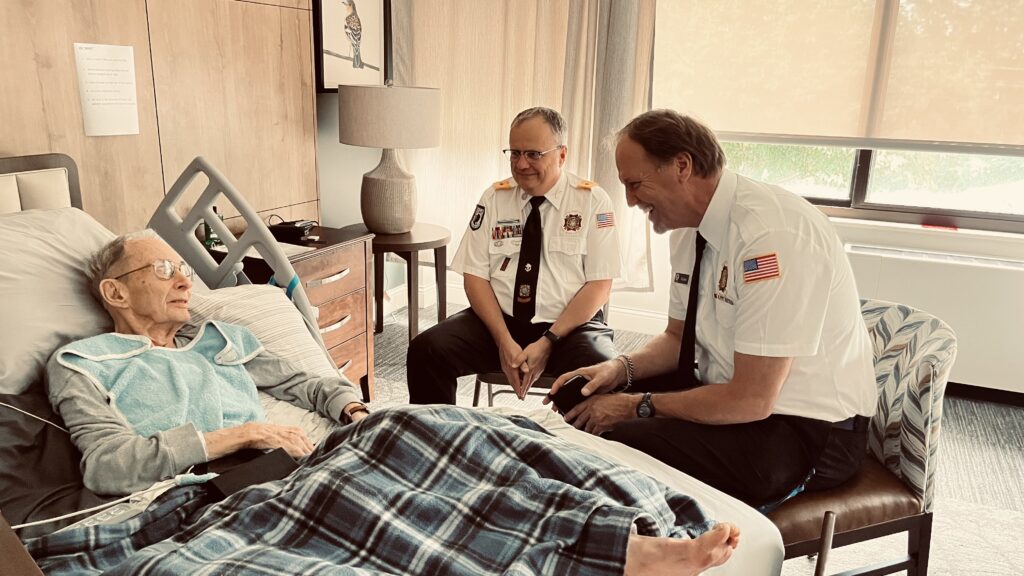When Marvin Tenhoff was in the sixth grade, his father gave him a clarinet and a saxophone, and taught him to play. At the time, he had no idea where it would lead him.
Six years later, Marvin Tenhoff graduated from high school in June of 1944, was drafted into the Army, and sent to Arkansas. “The Battle of the Bulge killed a lot of American soldiers, so they raced us through training and sent us abroad to fight in World War II.”
It was a rainy day when Marvin and his mates walked off the Army warship in Liverpool, England during the attack of a buzz bomb from Germany. From there, it was on to Le Havre, Belgium and the Landing Craft Infantry (LCI), that would take them into combat. “We wore leftover canvas leggings and old shoes from World War I,” Marvin said. “But they gave me an exceptional rifle, that helped me shoot a perfect score on the range.” When asked how he became a good marksman, he replied. “My friends and I played with BB-guns on the fields and hills of Mankato, MN where I grew up. We also quickly learned the value of running in a zig zag instead of straight ahead if we wanted to avoid being hit.” More on that later.
Orders came in and Marvin went to Remagen to cross the Rhine River into Germany. Waiting in line for their turn to cross, he and his fellow soldiers watch the Remagen bridge collapse, killing 34 soldiers. “I would have been me, if we had crossed first,” he said. “We crossed the river and went to Linz in upper Austria where we were commanded to hold the bridge head until more troops crossed into Germany.”
In 1945, Marvin went to the Ruhr Pocket with the 7th Armor Division where Germany’s hopes came to an end. “Sometimes we supported the tank, and sometimes they supported us,” he says. “The tank commander was Will Rogers, Jr., (son of vaudeville performer Will Rogers), and we fought the Germans together.” Marvin and his fellow soldiers may have lost their lives to the German’s had Marvin not remembered a maneuver that saved him from BB-gun fire in the fields of Mankato. “Run in a zig zag,” he yelled to his comrades, saving them from enemy fire.
“Unfortunately, my commander chose not to listen, and took a bullet in his lung,” Marvin added. “So, I brought him to the medic, and he survived. I received a bronze star for saving my unit and our commander.”
From there, Marvin joined Patton’s Third Army, and crossed the Danube to find waiting Russian allies. Marvin said, “We just waved at each other.” Marvin was now assigned to support the
99th Infantry Division in Germany, commanded by Colonel Pergrin, commanding officer of the 291st Engineer Combat Battalion. With a desire to entertain the troops, the 99th Infantry Division picked up some used musical instruments, Marvin’s saxophone talent emerged, and he was transferred to the 1st Infantry Division to perform for American troops across Europe.
